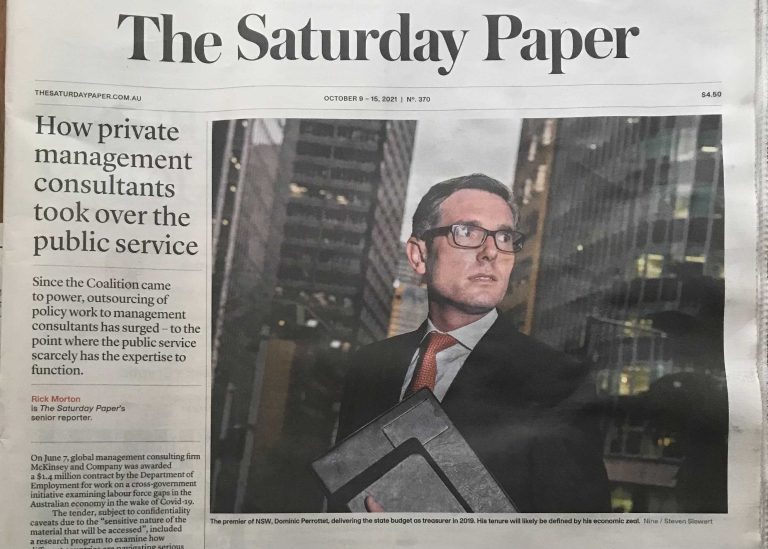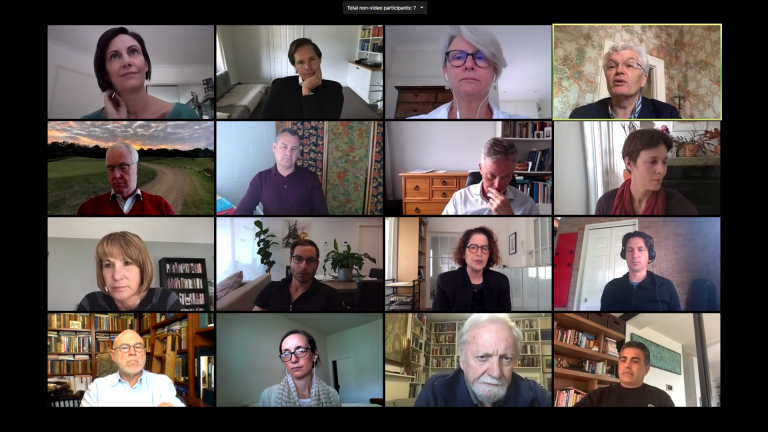Civics and Citizenship education has come a long way since Paul Keating instigated the formation of a Civics Expert Group (CEG) in 1994. The non-partisan program for citizenship education in Australia was created in response to a perceived ‘civic deficit’; the poor levels of knowledge about Australian political processes and institutions amongst students.
| [adsense:234×60:1:1] |
In comparison ‘Discovering Democracy’, the original blueprint for civics education espoused by the Howard government, may seem somewhat conservative and ‘uncritically celebratory’. But the initiative has put civics and citizenship on the map in schools nationwide. This momentum has also opened the necessary space for state Labor governments to create their own customised approaches. In Victoria, for instance, the Victorian Essential Learning Standards (VELS) curriculum framework focuses strongly on civics and citizenship, embracing the study of ‘human rights and social justice issues at local, national and global levels’, allowing students ‘to formally participate in and practice activities and behaviours which involve democratic decision-making’. http://vels.vcaa.vic.edu.au/downloads/vels_standards/velsrevisedcivics.pdf
Civics and citizenship education is one of the most important fields of education, providing secondary students with ‘civic knowledge’ of institutions and processes, as well as knowledge of contemporary social issues challenging Australian and international citizens. It enables students to understand civil society and thus better participate as active citizens in a democracy.
Unfortunately, however ‘Discovering Democracy’ has struggled to find space in a crowded curriculum — especially in the final two years of secondary school. The lack of any compulsory civics and citizenship content in the latter years has left in question the seriousness with which civics and citizenship education is regarded by government despite the significant achievements of the ‘Discovering Democracy’ initiative.
It is time to re-evaluate the importance of the civics and citizenship education agenda. Civics and citizenship education should be included in ‘streams’ of humanities and social sciences subjects. In particular, it should receive greater emphasis and in-depth attention in what is known as ‘Studies of Society and Environment’ (SOSE) in Victoria, Tasmania, and Queensland, as ‘Society and Environment’ in South Australia, and as ‘Human Society and Its Environment’ (HSIE) in New South Wales. HSIE is already a compulsory subject in year 10 – we now need to replicate this move and insist on the compulsory study of SOSE and/or History in years 7-10 nationwide. In addition, civics and citizenship competencies need to be embedded in the compulsory humanities and social sciences ‘streams of subjects’ that year 11 and 12 students must chose from.
Unfortunately SOSE currently attempts far too much with too little time available, combining the study of history, geography and society. This effectively ‘crowds out’ the critical study of society. Restructuring the SOSE curriculum to provide further political, historical and sociological content is thus also a central component of any restructuring of civics and citizenship education, preferably including separation of the broader SOSE agenda from geography.
Ideally, a restructured SOSE curriculum and revitalised humanities and social science curricula in years 11 and 12 ought to give pride of place to the following objectives:
- critical analysis of how identity and social relations are constructed and contested on the basis of class, ‘race’, ethnicity, nationality, gender and religion, as well as a consideration of whether or not said social relations are just or unjust
- critical analysis of how citizens organise to pursue their interests and ideals both through conventional political channels and through political activism: constantly posing the question of what kind of action is or is not legitimate given various social circumstances, including the prevalent ‘social contract’, social stratification, and the ‘rule of law’
- critical analysis of Australian and international political institutions and processes
- consideration of political philosophies and ideologies and national and international social and political movements: their values, history and objectives — and the relevance of such traditions in the present
- a critical consideration of political economy, including consideration of the values that inform a range of economic theories and perspectives
- development of a stronger focus on active citizenship. Students would be encouraged to involve themselves as active citizens, examples of which could include writing articles for a student paper, taking part in student representation, writing a ‘letter to the editor’ of a paper or magazine, engaging in internet forums on social issues, or joining a political party or social movement
- critical analysis of ‘civic megatrends’ such as multiculturalism and globalisation, including the deconstruction of such trends — e.g.: is ‘globalisation’ really a new phenomena, how much does it truly constrain national government, and can any such constraints be overcome through internationalism? OR — does multiculturalism imply cultural relativism and can cultural relativism be justified?
Obviously the content thus considered would need to be channeled through in a highly simplified form in the early years and expanded during years 11 and 12, a period of significant intellectual maturation where there would be great potential for empowerment of senior secondary students.
The above model for civics and citizenship education could best be referred to as the ‘active/critical’ model — often referred to by educators as a ‘maximalist’ model. Rather than simply offering selected snippets of civic knowledge about political processes and leading historical personalities, this approach encourages students to engage in political processes and struggles and develop their own worldviews, political values and identities. Despite the probable conservative charge of ‘bias’ it ought be reinforced here that such a curriculum would seek to encourage critical thinking with regard to all worldviews, allowing students to independently form their own values systems.
The aim, then, is to create ‘citizens of social vision’ whose broad and critical knowledge of civic society, social relations and assumptions is sufficient to provide for truly informed and active participation in civic life — a solution to the ‘civic deficit’ which we have so far failed to address.
Ideally, the Federal government should revitalise the ‘Discovering Democracy’ initiative by providing additional material with the aim of supporting a more ‘critical/active’ approach. Additional curricular material should also be provided by state governments with the aim of enhancing teacher choice in years 7-10 and deepening civics and citizenship content in years 11-12 and beyond into tertiary education.
Ultimately, it is a question of what importance we put upon the values and social engagement that must be present for the success of any robust democracy. Do we want to educate purely for vocation or do we want to educate for the ‘whole person’, including the rights and responsibilities that underpin citizenship? The consensus amongst educators is that civics and citizenship must move to centre stage in the curricula of education systems nationwide.
Ideally the ideas in this paper should be able to garner cross-party support at the Federal level, as all political parties ought to support the development of the capacity for critical thought and informed citizenship in future generations of voters. If such a consensus should be lacking however, state Labor governments should take advantage of the situation to implement a ‘critical/active’ agenda for their citizens and for citizens nationwide.
This article was originally published in Agora, the journal of the History Teachers Association of Victoria (HTAV)
References
Ewins, T, ‘Chapter 7 — Citizenship Education in Australia — Beyond Consensus’ in Patmore, G (Ed) (2004), ‘The Vocal Citizen’, Arena Printing and Publishing, Fitzroy, pp 100-115
http://www.abc.net.au/civics/teach/articles/jdickson/currentsit.htm
http://vels.vcaa.vic.edu.au/downloads/vels_standards/velsrevisedcivics.pdf



